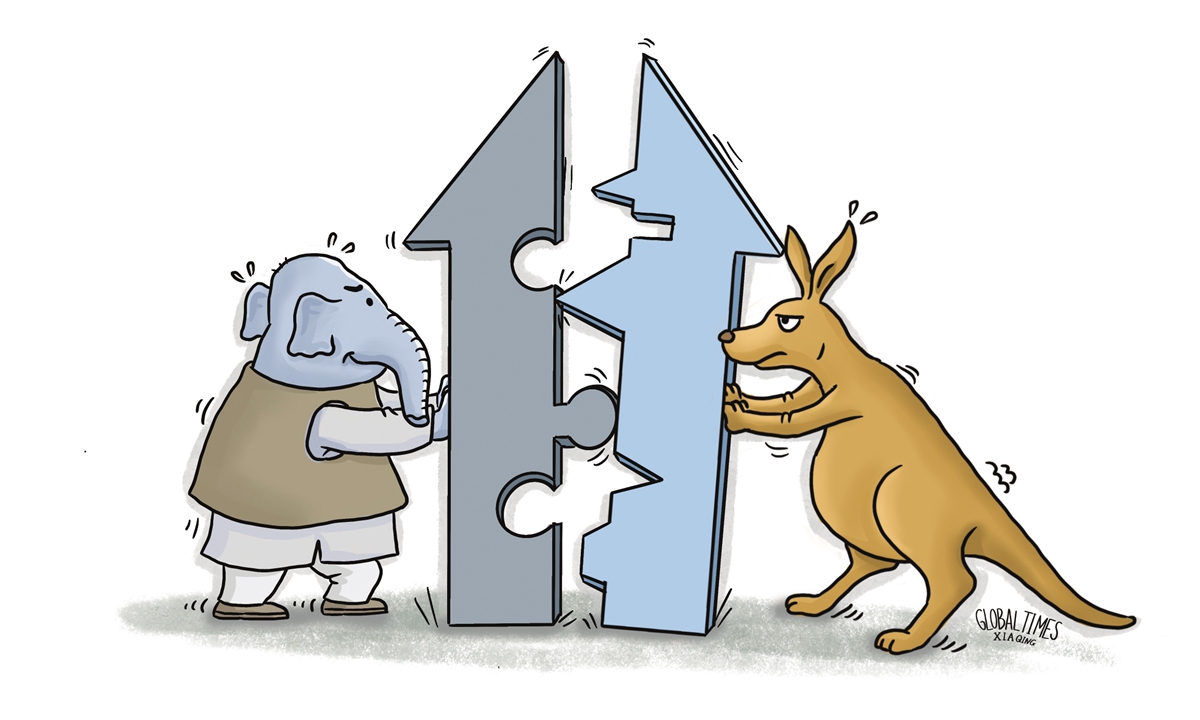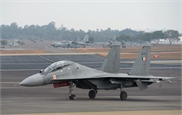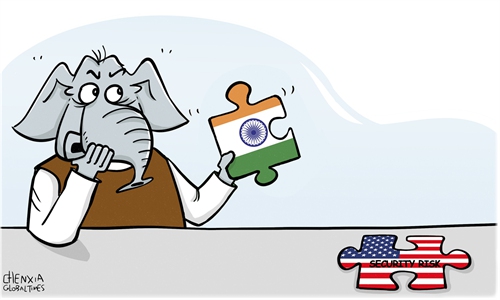
Illustration:Tang Tengfei/GT
On Saturday, Indian External Affairs Minister Subrahmanyam Jaishankar paid a brief visit to Australia, met with Australian Prime Minister Anthony Albanese, attended the Raisina @Sydney Dialogue organized by the Australian Strategic Policy Institute (ASPI) and India's Observer Research Foundation (ORF). This is yet another high-level contact between India and Australia after the Quad Foreign Ministers' Meeting in February 2022 and the 13th India-Australia Foreign Ministers' Framework Dialogue in October 2022.In spite of their common historical affiliations, India and Australia have largely kept each other at arm's length. Since the 21st century, bilateral ties have developed, with the establishment of the annual Foreign Ministers' Framework Dialogue, but bumps still exist. It wasn't until 2017 when China-India and China-Australia relations deteriorated that India-Australia relations began to warm up rapidly.
Amid the complex strategic considerations behind the intensive engagement between India and Australia, the ultimate purpose is to counterbalance China through expanding cooperation. India and Australia's relationships with China have been at a low ebb. The deepening of China-Australia economic and social ties has intensified Australia's strategic suspicion of China. Meanwhile, although China-India relations thawed in the early days of the Modi administration, anti-China sentiment has been aroused in India in the wake of the border disputes, India's vain attempt to become a member of the UN Security Council, China's veto of India's entry into the Nuclear Suppliers Group, as well as the failure of Modi's "Issue-by-Issue" diplomacy with China The gap in their national strength and the booming development of the China-proposed Belt and Road Initiative in South Asia have further ignited India's vigilance toward China. Furthermore, since the COVID-19 pandemic hit the world and strategic competition between China and the US led to the adjustment and reshaping of the global manufacturing industry chain, India has had an ambition to replace China as the "world factory."
With the intensified strategic competition between China and the US over the years, Australia and India have reached a consensus on containing China. Australia serves as the pawn of the US, and rushed to the forefront on an array of issues that tarnish China's image. It not only advocates the "China threat" theory, but groundlessly accuses and attacks China to provoke confrontation between the two countries. India, on the other hand, regards the long-term competition between China and the US as a great opportunity for its rise, and has made strategic transformation, shifting from a balanced diplomacy to the path of "containing China."
Therefore, both India and Australia seek to consolidate bilateral relations in a bid to reduce their economic dependence on China and strengthen their strategic containment of China. Within the framework of Quad, the US has established military alliances with Japan and Australia, while India has formed an institutionalized military cooperation with Japan and the US respectively, This has left the India-Australia relationship as the weak point in the four countries' security partnerships. Substantial improvement in India-Australia relations will enhance the cooperation of Quad, and will increase their strategic containment of China. But in the meantime, India and Australia obey and serve the US' Indo-Pacific Strategy, which tie themselves more tightly to the US anti-China chariot, risking them to lose diplomatic leeway on the global stage outside the US-led small circle.
The joint meeting held by Australian and Indian institutes is a typical way of the track-two diplomacy. Indian's ORF has been engaged in foreign affairs research for a long time. Since 2016, ORF has jointly organized the Raisina Dialogue with the Indian Ministry of External Affairs concerning global political, economic and social issues, and has yielded influential research results on policy.
At the joint meeting on Saturday, Indian and Australian officials and scholars addressed the two panel sessions on "Next steps in the Australia-India economic partnership: stability, security and sovereignty" and "Strengthening partnerships in a time of geopolitical and technological Competition." The discussion suggested the strong willingness of the two countries to further strengthen their partnership and clarified the specific fields of future cooperation.
The cooperation between think tanks is aimed at publicly expressing academic views by giving full play to the think tanks' influence on national policies through the "revolving door" effect. It also seeks to provide intellectual support for India-Australia strategic cooperation, propose alternative solutions for specific cooperation as well as forward-looking suggestions for potential problems based on the research results. Finally, it aims to promote track-one diplomacy with track-two diplomacy through continuous academic and semi-official contacts, and hold private and informal consultations on sensitive issues to understand, influence and even shape the policy preferences of the other country. Considering India and Australia's tendency of containing China, their moves require for further attention.
The author is an adjunct researcher at the Center for Australian Studies, China University of Mining and Technology. opinion@globaltimes.com.cn



